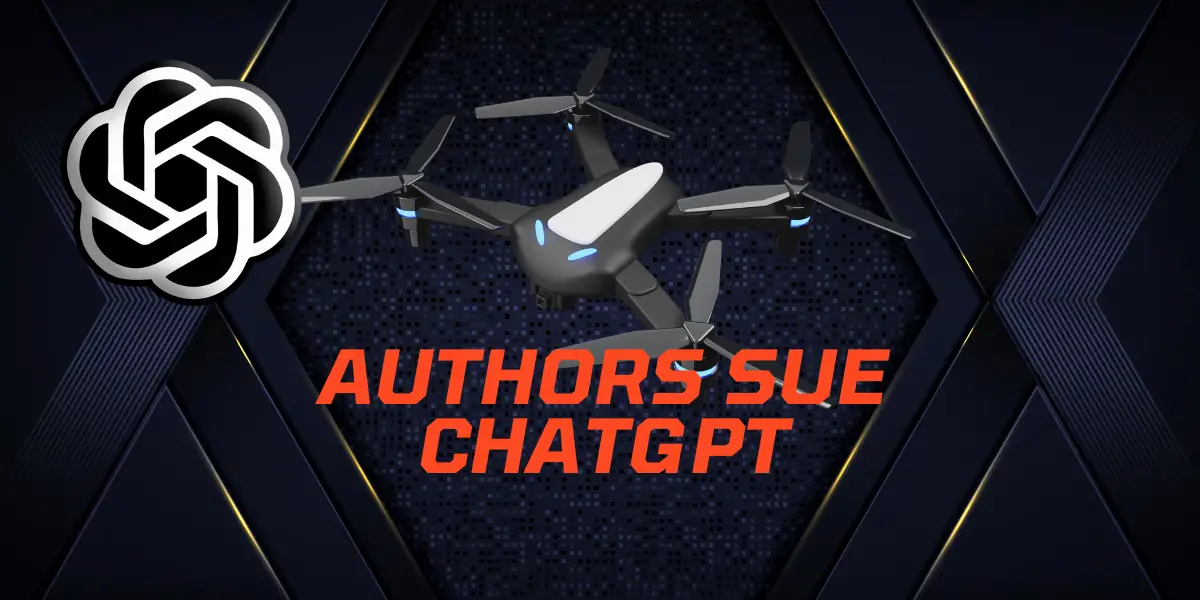Authors Sue ChatGPT: A Battle Over AI and Copyright

In the ever-evolving landscape of technology, artificial intelligence (AI) stands out as one of the most transformative innovations of our time. Its applications span across industries, from healthcare to finance, and now, even the sanctum of literature is not untouched. OpenAI’s ChatGPT, a marvel of conversational AI, has become the epicenter of a heated debate between the realms of technological advancement and literary rights. As renowned authors rally against this AI giant, accusing it of copyright infringement, the tech world is forced to introspect: Where do we draw the line between innovation and infringement?
OpenAI’s ChatGPT is being sued by renowned authors for copyright infringement. These authors claim that their copyrighted works were used to train ChatGPT without permission. OpenAI counters this by stating that their use of the data falls under “fair use”.
Table of Contents
The Advent of AI and the Ensuing Literary Concerns
The dawn of the 21st century saw the rapid emergence of artificial intelligence (AI), a technology that promised to revolutionize industries and daily life. As AI systems became more sophisticated, they began to encroach upon domains traditionally reserved for humans, including the realm of literature and creative writing.
OpenAI’s ChatGPT, a state-of-the-art conversational AI, is a testament to the prowess of modern AI systems. However, with great power comes great responsibility, and OpenAI soon found itself embroiled in a controversy that would challenge the very ethics of AI development.
The Literary World’s Initial Fascination with AI
Initially, the literary world was enamored with the potential of AI. Writers and poets experimented with AI-generated content, marveling at the machine’s ability to produce human-like text. Publishers and editors saw AI as a tool to streamline workflows, from manuscript evaluations to editing.
However, as the technology matured, so did its appetite for data. AI systems, including ChatGPT, were trained on vast amounts of text sourced from the internet. This indiscriminate consumption of data soon raised eyebrows, leading to the current legal standoff.
Allegations and Counterarguments: A Tug of War
At the heart of the lawsuit against OpenAI is a fundamental question: Can AI systems use copyrighted content for training without explicit permission from the authors? The plaintiffs, a group of 17 esteemed authors, believe the answer is a resounding “no.”
The Authors’ Standpoint
For these authors, many of whom have dedicated their lives to their craft, the unauthorized use of their works is a violation of their intellectual property rights. They argue that their writings, born out of personal experiences and reflections, cannot be commodified by tech companies seeking to profit from AI.
OpenAI’s Defense
OpenAI, on the other hand, posits that their use of online data is covered under the “fair use” doctrine of US copyright law. They contend that the data used to train ChatGPT is not directly monetized and that the AI’s outputs are original creations, distinct from the input data.
Broader Implications for the Tech Industry
The outcome of this lawsuit will have ramifications far beyond OpenAI and the plaintiffs. The tech industry, which has long operated in a regulatory gray area, is keenly watching the proceedings.
Setting a Legal Precedent
If the court rules in favor of the authors, it could set a legal precedent that would require tech companies to obtain permissions before using copyrighted content for AI training. This could lead to a complete overhaul of how AI models are developed.
The Ethical Dimension
Beyond the legal implications, the lawsuit also raises ethical questions about the responsibilities of tech companies. In their quest for innovation, should companies be allowed to use and potentially profit from the creative works of individuals without due compensation?
The Authors' Crusade: More Than Just Royalties
While the lawsuit seeks monetary damages, for many authors, the battle is about more than just money. It’s about recognition, respect, and the right to control how their works are used.
The Sanctity of Original Creation
Authors view their works as extensions of themselves. Each word, sentence, and paragraph is a product of careful deliberation and reflection. To see their works used without permission is, for many, a deeply personal violation.
The Future of Literary Creation
The lawsuit also touches upon the future of literary creation in an AI-dominated world. If AI systems can produce human-like text, what place do human authors have in the literary ecosystem?
See more:5 Best ChatGPT Alternatives in 2023
OpenAI's Vision: A Harmonious Coexistence
Despite the legal challenges, OpenAI envisions a future where AI and humans coexist harmoniously. They believe that AI can be a tool that augments human creativity rather than replaces it.
Collaborative Creation
OpenAI sees a future where authors collaborate with AI systems to produce content. In this vision, AI acts as a muse, suggesting ideas and themes, while the human author provides the unique touch that only human experience can bring.
A Commitment to Ethical AI
OpenAI has expressed its commitment to developing AI ethically. They are actively engaging with stakeholders, including authors and the broader public, to understand concerns and shape the future of AI in a way that benefits all.
Also read:How to Fix Authorization Error Accessing Plugins on ChatGPT?
Conclusion
The lawsuit against OpenAI’s ChatGPT is emblematic of the broader challenges that arise when technology intersects with traditional domains. As AI continues to push the boundaries of what’s possible, society is compelled to redefine the parameters of ethics, rights, and responsibilities. Regardless of the lawsuit’s outcome, it serves as a poignant reminder that in the race to innovate, the human element – with all its creativity, rights, and emotions – must not be overlooked. However,there is still a possibility that oneday AI writing can overtake this world’s all press jobs, or these authors them have already got a Chat GPT login account and started to use it while refuing its legality…The future of AI and literature hinges on finding a harmonious balance, ensuring that technology augments human creativity rather than overshadowing it.

